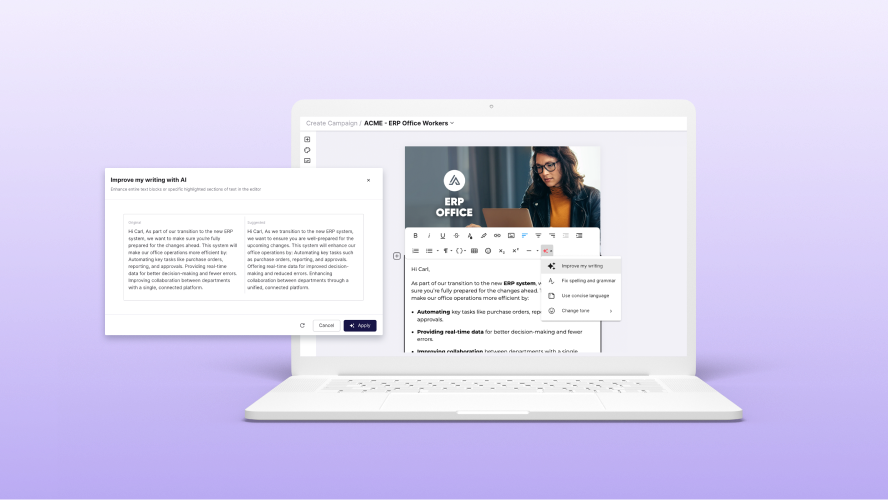Table of Contents
Companies are empowering their employees to easily distribute content that highlights the brand with their social media networks. Because employees have greater creditability than impersonal brands, their words carry greater weight with friends, family, peers. That’s the essence of Employee Advocacy.
Again, it’s not rocket science. That said, it’s always nice when research backs up what we already know in our gut. In the spirit of sharing, here are a dozen examples of survey data that explain the growing importance of Employee Advocacy.
- The Authenticity Gap, a recent FleishmanHillard Global Study, revealed that consumers are three times more likely to trust a company employee rather than a CEO when it comes to sorting fact from fiction about a brand.
- A LinkedIn study found that job candidates have three times greater trust in the company’s employees than the organization to provide credible information on what it’s like to work there.
- People hold more trust in “My Employer” than any other institution (75 percent) globally, according to the 2019 Edelman Trust Barometer. Employees who have confidence in their employer are far more likely to engage in beneficial actions such as advocating for the organization.
- A recommendation from a friend or family member makes 84 percent of Americans more likely to purchase that product or service.
- Roughly seven-in-10 U.S. adults (69 percent) use Facebook, 40 percent say they visit Instagram, and
- 72 percent of Americans between the ages of 18 and 29 use social media, according to the Pew Research Center.
- A study by Marketing Advisory Network showed that 81% of Millennials share information about their job, compared to 72% of Generation Z and a mere 47% of Baby Boomers
- The click-through rate (CTR) on a piece of content is 2x higher when shared by an employee versus when shared by the company itself, according to LinkedIn.
- The average American is online 31 hours a week, according to the Pew Research Center.
- Glassdoor learned that 79 percent of job applicants use social media in their job search, and the number increases to 86 percent for people in the first 10 years of their careers.
- 94% of marketers use social media for content distribution as their primary channel for content distribution.
- LinkedIn determined that 78 percent of social-sellers outperform peers who don’t use social media and that they are 51 percent more likely to reach quota.
- 75% of candidates will research a company’s reputation before applying for a job opening.
The foundation of an excellent advocacy program is a clear, transparent internal communication system that makes people feel part of something larger than themselves.
When employees understand the organization’s mission and values, feel heard, and their efforts get recognized, they are more invested, and more likely to share their passion for the organization and the cool things happening in their workplace with the broader world.
Internal Comms & Advocacy: Better Together
Know of other great Employee Advocacy statistics? Find and share them with us on LinkedIn or Twitter!
Table of Contents
Related posts
Subscribe via Email
Subscribe to our blog to get insights sent directly to your inbox.
Related posts

Sign up to receive the latest news and resources from Firstup
Firstup delivers personalized communication and data insights to improve the employee experience at every moment that matters





